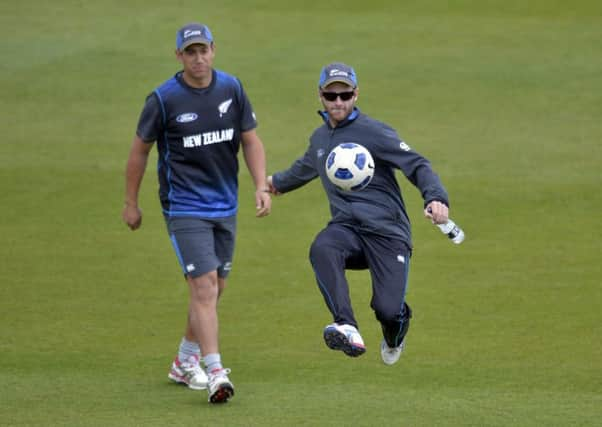New Zealand well aware of the threat posed by Yorkshire’s Jonny Bairstow


But while England leave their decision until this morning as to whether their wicketkeeper-batsman is fit to take part in the Royal London Series decider after splitting the webbing on his left hand, the tourists will not make the mistake of under-estimating any replacement.
Yorkshire’s Jonny Bairstow is expected to be Buttler’s deputy, if indeed required, and Kiwi batsman Ross Taylor made it clear he has plenty of respect for the Yorkshireman.
Advertisement
Hide AdAdvertisement
Hide AdTaylor said of Buttler: “He’s been in outstanding form in this series, but Bairstow is another good player who has played some valuable games against us in the past.
“Then again, they got 350 in the last game – and Buttler didn’t even bat.”
Whoever ends up in front and behind the stumps for England, Taylor knows plenty more runs may well be needed to edge a series which will become the first of its type to break a 3,000 aggregate if a mere 324 more are mustered in Durham.
Current one-day international playing conditions undoubtedly favour the batsmen and Taylor, who has been prolific in four matches so far, jokes that he is intent on cashing in further before planned International Cricket Council tweaks come in later this year.
Advertisement
Hide AdAdvertisement
Hide Ad“(I’ll try to) score as many runs (as possible) until they change the rules,” he said.
“I don’t want to put any pressure on myself, because I mightn’t score any runs (in this next game).
“But if you get yourself in it’s easier to hit boundaries ...”
Modern bats, ever-increasing in thickness, and fielding restrictions which leave bowlers with so little leeway are regularly cited as the reasons for more and more huge totals.
Advertisement
Hide AdAdvertisement
Hide AdTaylor believes the recent decision to use a new ball at each end in 50-over cricket is also a major factor – because a hard ball travels further when well-struck, and without the same natural wear and tear it does less for the bowlers too.
“I’ve been thinking about it a lot, and if you take calculated risks you can get to the boundary a lot easier than in the past – from when I started out,” he added.
“One thing I haven’t heard a lot about is two new balls, because ... the new ball is still hard in the last 15 overs.
“People talk about bats being big.
“But the ball is quite hard and easier to hit - reverse-swing is a lost art.
“Maybe going back to one ball could be good as well.”
Advertisement
Hide AdAdvertisement
Hide AdCoach Mike Hesson added that he believes the reason for teams conceding so many runs is due to the ball not swinging.
He added: “We have struggled to deliver a succession of dot balls, or overs that haven’t gone for boundaries.
“The key thing is the ball hasn’t swung.”